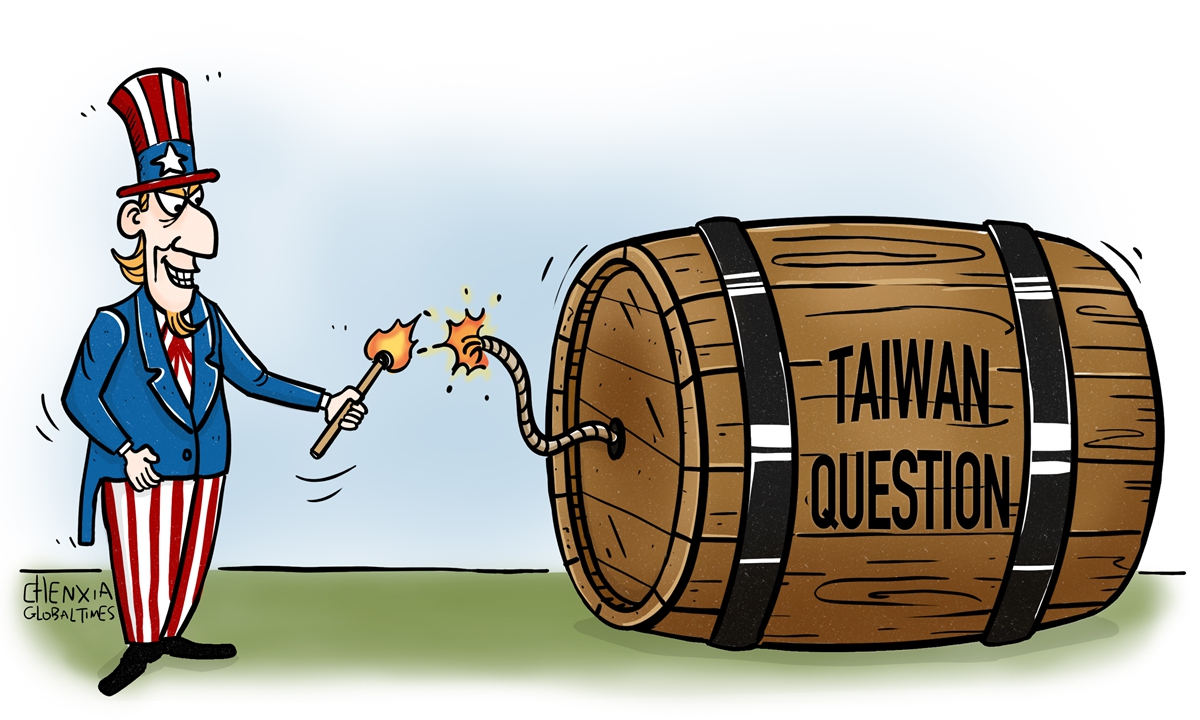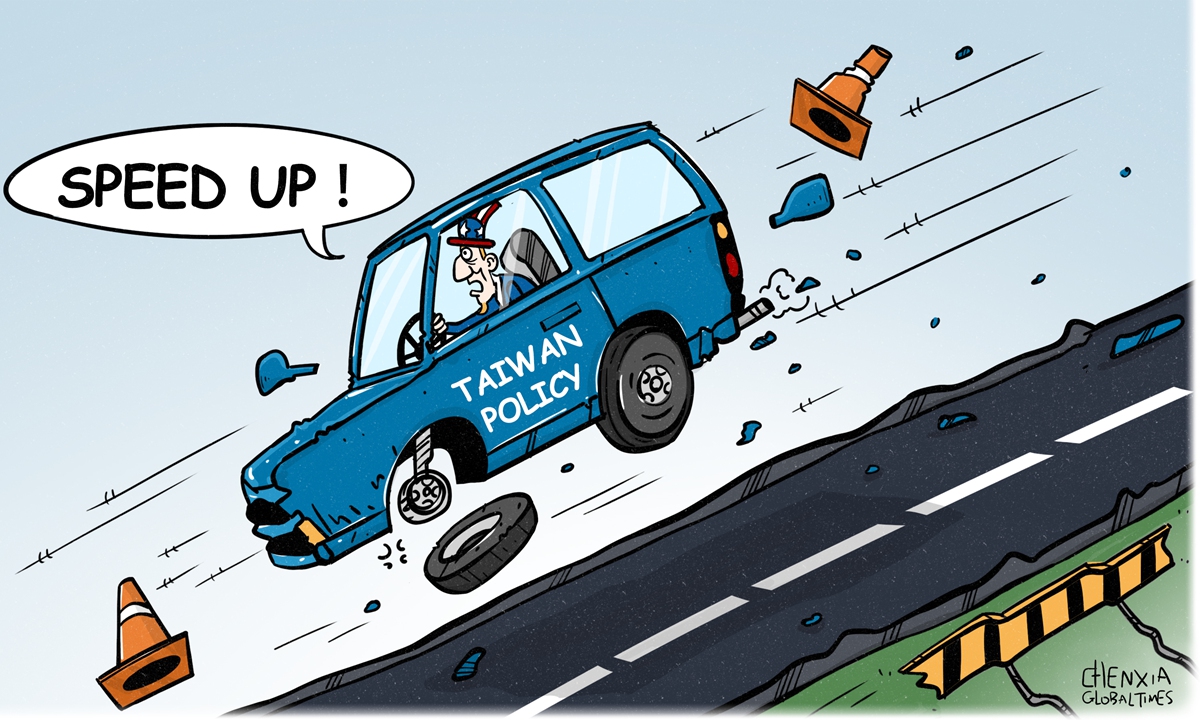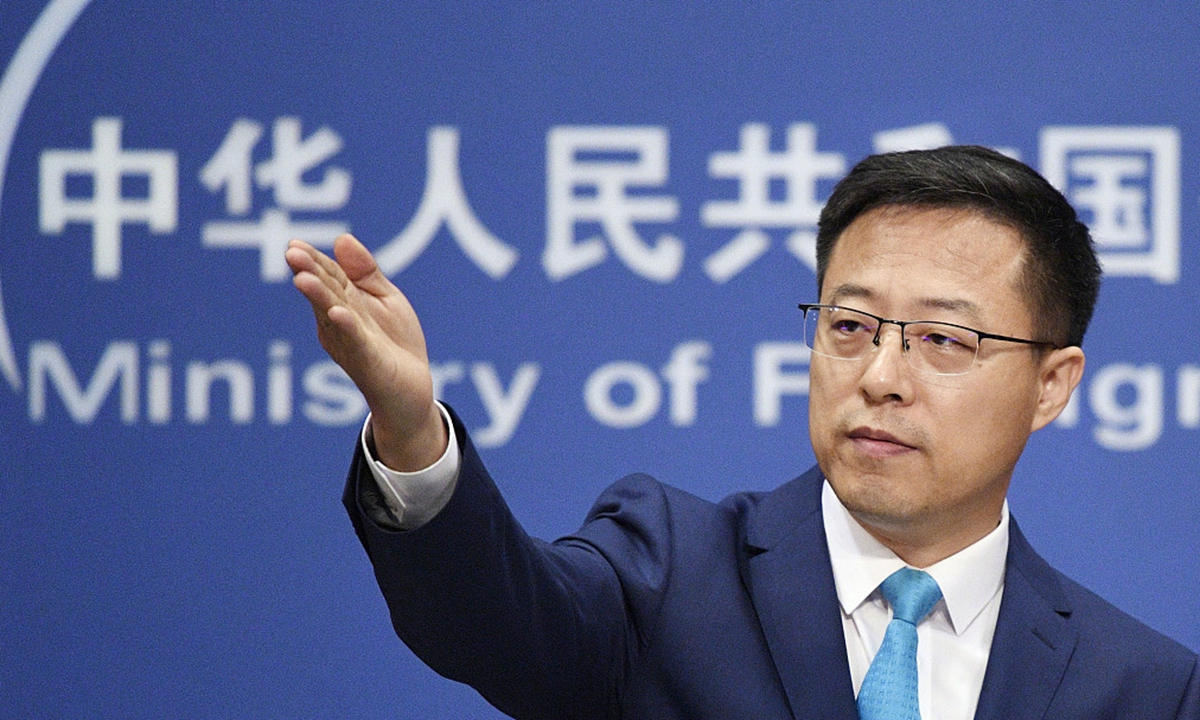The US looks at reducing China tariffs amid soaring inflation in the country
Yang Jiechi (center), a member of the Political Bureau of the Communist Party of China Central Committee and director of the Office of the Central Leading Group for Foreign Affairs, criticizes human rights issues in the US at the opening session of US-China talks in Anchorage, Alaska on March 18, 2021. Photo: AFP
The US is seeking help from China to ease its economic pressure, hinting that it may ease tariffs on Chinese goods and engage in dialogue with senior Chinese officials more often. However, analysts said Beijing will approach Washington's overtures with caution, as it is still trying to use the tariffs as bargaining chips rather than sincerely correcting its mistakes that have harmed both sides. Chinese Vice Premier Liu He, a member of the Political Bureau of the Communist Party of China (CPC) Central Committee and chief of the Chinese side of the China-US comprehensive economic dialogue, held a conversation via video link with US Secretary of Treasury Janet Yellen at the latter's request on Tuesday morning, according to the Xinhua News Agency. As agreed by China and the US, Chinese State Councilor and Foreign Minister Wang Yi will meet with US Secretary of State Antony Blinken during the meeting of G20 foreign ministers, Chinese Foreign Ministry announced on Tuesday. In June, the defense chiefs of both sides met in Singapore on the sidelines of the Shangri-La Dialogue, and Yang Jiechi, member of the Political Bureau of the CPC Central Committee and director of the Office of the Central Commission for Foreign Affairs, met with US National Security Advisor Jake Sullivan in Luxembourg. Such frequent communications between senior officials of the two sides show that China and the US are making efforts to manage the differences and competition to prevent escalation caused by miscalculations, while at the same time, the US is trying to seek China's help to ease the serious inflation the US is being confronted with, analysts said. Chinese analysts said on Tuesday that although its economy is in disarray, the US is still being provocative in geopolitical issues to contain China. This means the US should not expect China to provide significant support for it to solve its domestic problems. The US tariffs have turned out to have a limited impact on the Chinese economy, and these are just part of the mistakes that the US must correct to bring bilateral ties back on track. Heavy pressure During the Liu-Yellen conversation on Tuesday, the two sides had a pragmatic and candid exchange of views on such topics as the macroeconomic situation and the stability of global industrial and supply chains. Their exchanges were constructive, the Xinhua reported on Tuesday. The two sides agreed that as the world economy is facing severe challenges, it is of great significance to strengthen macro-policy communication and coordination between China and the US. Jointly maintaining the stability of global industrial and supply chains is in the interests of both countries and the whole world. The Chinese side expressed its concern about issues including the lifting of additional tariffs on China and sanctions by the US side, and fair treatment of Chinese enterprises, the Xinhua reported. Lü Xiang, a research fellow at the Chinese Academy of Social Sciences, told the Global Times on Tuesday that the US has been forced to engage with China because of its dreadful domestic economic situation. "Joe Biden now is having a big headache as his approval rating is even lower than his predecessor Donald Trump at the same stage of presidency, which is a great humiliation. The pressure to win the midterms is heavy and serious, so he must find solutions to at least make some changes," Lü said. Biden's approval rating was 39 percent as of June 30, according to an analysis by poll tracker FiveThirtyEight, while 56.2 percent of Americans disapproved of the way the president is handling his job, according to the Newsweek. Trump's approval rating on July 1, 2018 was 41.8 percent, while 52.3 percent of Americans disapproved of him, figures from FiveThirtyEight show. In 2018, Republicans suffered a major defeat in the midterm elections and lost 40 seats in the House of Representatives, handing control to the Democrats and allowing Nancy Pelosi to return as speaker. Experts said the main factor that could influence the midterms later this year is the economy, so if the Biden administration cannot deliver some positive changes to ease inflation and gas prices and stop the economic decline, the Democrats are likely to repeat the failure of the Republicans in 2018. Far from easing tension According to Bloomberg on Tuesday, Biden may announce as soon as this week a rollback of some US tariffs on Chinese consumer goods - as well as a new probe into industrial subsidies that could lead to more duties in strategic areas like technology. Although decreasing tariffs on Chinese goods has become an option for the US to solve some of its economic problems, it is still not clear what measures the US government will take next, experts said. According to one estimate by the New York Federal Reserve, US tariffs imposed on Chinese goods through the middle of 2019 cost the American household an average of $831 per year. "Decreasing tariffs on Chinese goods is a way to decrease inflation without the danger of hurting economic growth, but the US is not sure about the extent to which the tariff cuts would be effective in controlling price hikes. Therefore, the US government is still worrying about gains and losses and can't make up its mind," Gao Lingyun, a trade specialist with the Chinese Academy of Social Sciences in Beijing, told the Global Times on Tuesday. Bai Ming, deputy director of the international market research institute at the Chinese Academy of International Trade and Economic Cooperation, told the Global Times on Tuesday that "under the US' general strategy of containing China's rise, which is unlikely to change in the short term, the US might adjust some of the punitive tariffs on Chinese consumer goods, but at the same time intensify pressure on China, such as increasing sanctions on Chinese tech firms." Lü said that judging from the US' failed COVID-19 pandemic response, Afghanistan withdrawal, inflation and the Ukraine crisis, we found "the US system of command is problematic, and the coordination between White House staff and cabinet officials is desperately wanting. Therefore, in the future, we have to be prepared for many uncertainties and even some overnight contingencies." He added that it is caused by the problematic decision-making system of the US side. What should China do? Gao said that China should insist on an reciprocal tariff policy with the US, meaning cutting the same amount of tariffs on US goods if the US reduces tariffs on Chinese products. China should also insist that tariff reductions should bring benefits to both countries, he said. Bai noted that China should stick to its dual circulation policy, especially focusing on internal circulation so external policies would not affect China's economy to a great extent. Chen Jia, a research fellow at the International Monetary Institute of the Renmin University of China, said that market data show that the US economy is deeply bogged down in stagflation, while recessionary risks are increasing, which means the US is still far from reaching a turning point to stop its economic situation from worsening. On the other hand, the US is not making even small concessions in global strategies, rather it is showing an inclination to toughen the strategic encirclement of China, such as the recent Partnership for Global Infrastructure to target the China-proposed Belt and Road Initiative.
"If the US is willing to seize the opportunity to restart China-US high-level communication on the basis of economic cooperation, and move to repair the damage it has caused in the past, China would of course welcome and support those moves. But if the US continues to treat its global partners arrogantly, then it won't get any help from developing countries including China," Chen told the Global Times.







